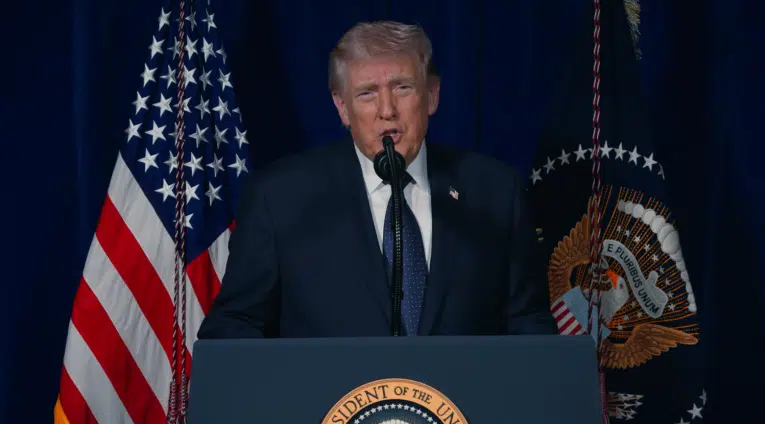“I don’t want to speculate, but here’s what we know, and I think it’s important for voters to hear this and weigh it in making their choice in November. We know that a lot of the rhetoric we’ve heard from Donald Trump has been seized on by terrorists, in particular ISIS…”
That was Hillary Clinton’s response to an outlandish question on Sept. 19 by Bloomberg Politics reporter Jennifer Epstein on if Islamic State or Islamic State-inspired terrorists in New York, New Jersey and Minnesota were a part of a foreign plot to influence the presidential election. Epstein even added for good measure, “or really any other group, maybe it’s Russian.”
As if after decades of terrorist attacks aimed at Americans, Islamist terrorists really needed any more excuses to attack the U.S.
In any event, Clinton didn’t want to speculate, but she proceeded to do so anyway. In her view, the terrorists want Trump to win the presidential elections to boost recruitment in response to his calls for a halt to immigration from nations with a history of terrorism. Following her logic, a vote for Trump is a vote for terrorism.
I don’t know, maybe the terrorists just hate us, Secretary Clinton?
Then Clinton accused Trump of treason, attributing her thoughts to the former head of our Counterterrorism Center, Matt Olsen, adding, “[T]he kinds of language and rhetoric Trump has used is giving aid and comfort to our adversaries.”
Ludicrous. As if taking stances against Islamist terrorism by focusing on border security and immigration from countries where terrorists tend to come from — a proposal of the Trump campaign — are somehow the reason for terrorist attacks.
In the meantime, real terrorist attacks have actually been enabled by U.S. immigration policy. For example, the 9/11 hijackers, who killed more than 3,000 Americans, were in the U.S. legally on student visas. If they hadn’t been issued visas, they probably would not have been able to complete the attacks. Pointing that fact out doesn’t cause terrorist attacks.
The suspect in the most recent New York pressure cooker bombing attack, Ahmad Khan Rahami, was an Afghan-born immigrant who became a naturalized citizen. If he hadn’t been issued his visa, he probably couldn’t have completed his attack either. Pointing this fact out doesn’t cause any more terrorist attacks.
You know what causes terrorist attacks? Terrorists.
And it is undeniable that many of the major attacks on U.S. soil in recent history have been religiously motivated by Islam.
The 1993 World Trade Center bombing was completed by terrorists who were or whose families were originally from Pakistan, Egypt, Iraq, and the West Bank.
The aforementioned 9/11 hijackers were on student visas from Saudi Arabia, Lebanon, United Arab Emirates and Egypt.
The Boston Marathon bombing was completed by the Tsarnaev brothers, who were here on refugee status from Chechnya.
The San Bernardino attacks were by U.S. citizen of Pakastani origin and his wife on a fiancé visa from Saudi Arabia.
The Orlando gay night club attack was by a U.S. citizen of Afghan origin.
The New York bomber was from Afghanistan, and the Minnesota stabber, who was shot and killed by a former police chief, was a refugee from Somalia.
Yes, that is not every Islamist terrorist attack. There have been others. And there have also been many other non-Islamist terrorist attacks, including Timothy McVeigh and Oklahoma City, the Unabomber and others.
One can disagree with Trump’s proposed policy that would restrict immigration from areas of the world with a clear history of terrorism, where the vast majority of residents are Muslims. Or argue that it would not stop every attack, which is most certainly true. Those are reasonable objections to be raised.
But to suggest Trump’s proposal — or even noting the Islamic origins of the attackers — is somehow the cause of Islamic-inspired terrorist attacks which go back decades ignores who the real enemy is. And that’s Islamic State and other terrorist organizations.
These were not Trump protestors. Or Russian agents. Or really trying to influence the elections. They were ruthless Islamist killers. They want us dead. Isn’t that enough? This time, it’s a miracle nobody was killed. Here, Clinton politicized the attacks and immediately blamed her opponent for what just as likely could have been a national day of mourning. There’s something sick and twisted about that.
Trump for his part responded to Clinton’s remarks in kind, being far more explicit, “Today, Hillary Clinton showed again that she will say anything — and blame anyone — to shift attention away from the weakness she showed as Secretary of State. The Obama-Clinton doctrine of not taking ISIS seriously enough has emboldened terrorists all over the world. They are hoping and praying that Hillary Clinton becomes President so that they can continue their savagery and murder.”
Which, is about the response you’d expect from Trump. What’s good for the goose, as the saying goes. If Clinton wants to blame her opponent for terrorist attacks, that’s fine. For what it’s worth, weakness is provocative. And it is perfectly legitimate to note the Obama administration’s failure to put a stop to Islamic State in Iraq long before the war got to this point as a potential cause for the group’s continued success. That certainly makes more sense than blaming Trump, who as a businessman and politician, has wielded no power to affect policy the past many years.
Here it is Clinton who is missing the mark, and now is sounding rather outlandish in her assessment of the threats facing the country. To hear her tell it, it is not Islamic extremist terrorists who pose a danger, but those who want to keep them out of the country. Nonsense.
Robert Romano is the senior editor of Americans for Limited Government.







